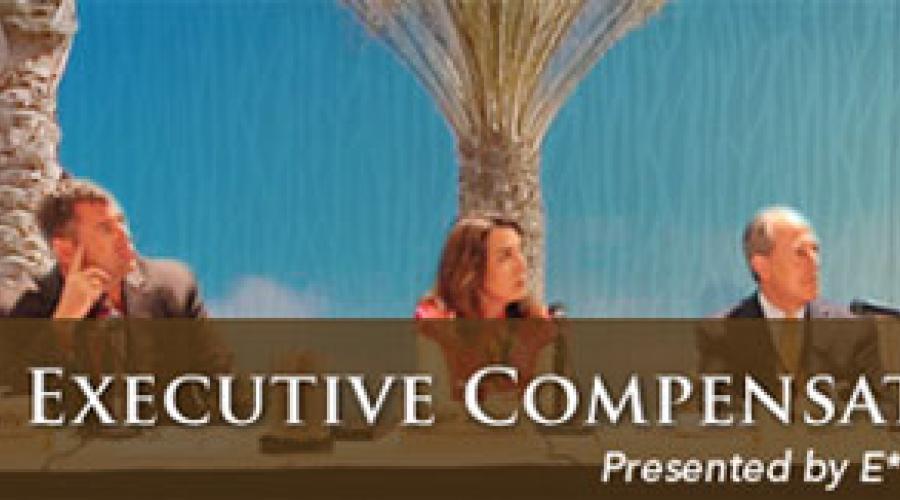
Say on Pay
"War Stories and Battle Wounds from the Premiere Season" proved the apt subtitle of a "say on pay" panel led by Kevin Hallock at the Equilar Executive Pay Summit in San Diego this week.
When the Dodd-Frank Act passed in July 2010, shareholders were able for the first time to cast proxy votes on executive pay.
"Say-on-pay" was the dominant topic throughout the national conference, with an estimated 400 attending the session moderated by Hallock.
"There was a fair amount of complaining about the say-on-pay regulations," said Hallock, director of the Institute for Compensation Studies and a professor of Labor Economics and Human Resource Studies.
"The majority of panelists and attendees, however, seemed willing to admit that the forced transparency did prompt some conversations between shareholders and companies that hadn't taken place this way before."
According to Bloomberg Businessweek, shareholder say on executive pay was "expected to widely challenge companies where compensation didn't reflect performance or were out of line" with competitors.
Participants in the paneled by Hallock discussed the percentage of shareholder "no" votes that should be interpreted as a losing outcome.
Is a loss defined as getting less than 50 percent of shareholder votes in the affirmative? Or, as some suggested, should anything under 70 percent support be considered a loss because it reveals significant shareholder lack of confidence?
Other themes expressed by panelists included:
- After reviewing this season's votes, it is still not clear how a company can guarantee a "yes" vote on "say on pay" actions.
- Complying with the Dodd-Frank legislation is expensive and although it did lead to some substantive changes in how CEOs were paid, it may result in an increasing homogenization of pay practice.
- This year may offer no indication of how shareholders will vote next year or beyond, as it is unclear how big an influence the rebound in stock prices was on shareholder say on pay voting.
"This year was just like the opening leg of a race that's all downhill. The real challenge," says Hallock, "will come when stock prices fall and shareholders aren't so happy with their returns."
Panelists joining Hallock were Irv Becker, national practice leader — executive compensation, Hay Group; John Borneman, principal, Semler Brossy Consulting Group; Mike Halloran, worldwide partner, Mercer; Anne Sheehan, director, corporate governance, California State Teachers Retirement System; and Jim Wolf, managing partner, Meridian Compensation Partners.


